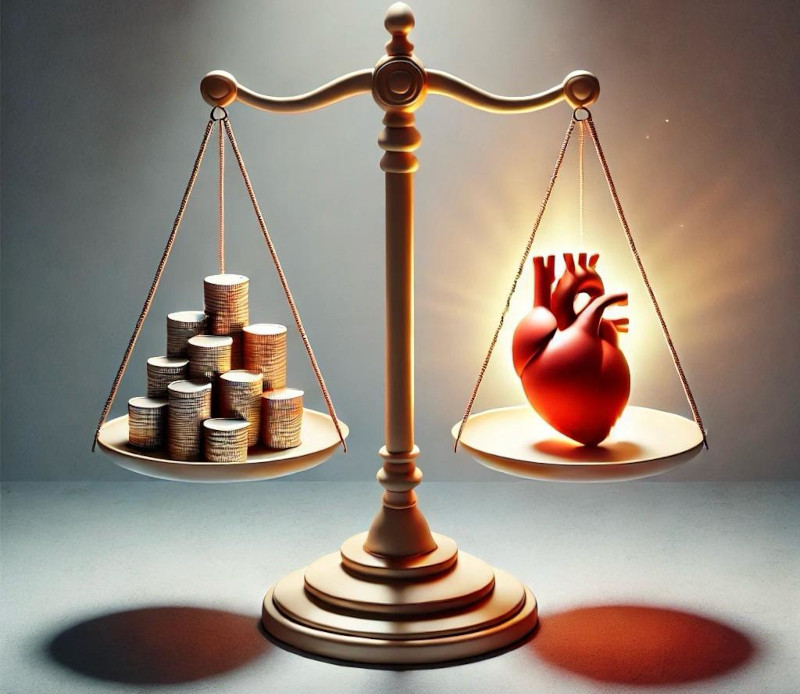
World Social Justice Day | Mercy and not inequality
The World Day of Social Justice, celebrated every year on February 20th, is an opportunity to reflect on inequalities
Economic and social inequalities are among the most serious issues the world faces today. According to the 2023 Global Poverty Report by the World Bank, about 9.2% of the global population still lives in extreme poverty, earning less than $1.90 per day.
Income and opportunity gaps are visible in many parts of the world, from rural areas in Africa to the outskirts of large cities. Women, children, and ethnic minorities are the groups most affected by these injustices.
The poor, in fact, are not only more vulnerable economically, but also have limited access to essential services such as education, healthcare, and social security.
Moreover, the COVID-19 pandemic has further exacerbated existing inequalities. According to the International Labour Organization (ILO), around 255 million jobs were lost globally during the pandemic, with millions of workers losing their income, particularly in the most vulnerable sectors, such as the informal economy.
Mercy and Social Justice: Two Inseparable Concepts
When reflecting on social justice, it’s impossible not to consider the value of mercy, a virtue that lies at the heart of many religious and philosophical traditions and is reflected in the principles of equity and equality. Mercy involves concrete action toward those who suffer, an appeal to empathy and solidarity.
In many religions, social justice is seen as a moral obligation. For example, in Christianity, the act of “mercy” toward the poor and needy is considered a duty, a way to build a more just society.
Pope Francis’ words, often quoted in social justice contexts, remind us that “mercy is the soul of justice,” a concept reflecting the need to not only “give,” but to “do” for others, in a daily commitment to justice.
A More Just Future Is Possible
Thus, the World Day of Social Justice invites us to reflect on the reality of the poor, inequalities, and mercy, but also to take a concrete step toward a better future.
Social justice is not just a political or economic goal, but an ethical and human imperative that requires everyone’s contribution. Only through collective effort can we hope to build a more just society, where every individual has the opportunity to live with dignity and hope for the future.
No one should be left behind. Social justice is the key to a world where mercy is not just an abstract value, but a daily, visible, and concrete reality for all.
Economic and social inequalities are among the most serious issues the world faces today. According to the 2023 Global Poverty Report by the World Bank, about 9.2% of the global population still lives in extreme poverty, earning less than $1.90 per day.
Income and opportunity gaps are visible in many parts of the world, from rural areas in Africa to the outskirts of large cities. Women, children, and ethnic minorities are the groups most affected by these injustices.
The poor, in fact, are not only more vulnerable economically, but also have limited access to essential services such as education, healthcare, and social security.
Moreover, the COVID-19 pandemic has further exacerbated existing inequalities. According to the International Labour Organization (ILO), around 255 million jobs were lost globally during the pandemic, with millions of workers losing their income, particularly in the most vulnerable sectors, such as the informal economy.
Mercy and Social Justice: Two Inseparable Concepts
When reflecting on social justice, it’s impossible not to consider the value of mercy, a virtue that lies at the heart of many religious and philosophical traditions and is reflected in the principles of equity and equality. Mercy involves concrete action toward those who suffer, an appeal to empathy and solidarity.
In many religions, social justice is seen as a moral obligation. For example, in Christianity, the act of “mercy” toward the poor and needy is considered a duty, a way to build a more just society.
Pope Francis’ words, often quoted in social justice contexts, remind us that “mercy is the soul of justice,” a concept reflecting the need to not only “give,” but to “do” for others, in a daily commitment to justice.
A More Just Future Is Possible
Thus, the World Day of Social Justice invites us to reflect on the reality of the poor, inequalities, and mercy, but also to take a concrete step toward a better future.
Social justice is not just a political or economic goal, but an ethical and human imperative that requires everyone’s contribution. Only through collective effort can we hope to build a more just society, where every individual has the opportunity to live with dignity and hope for the future.
No one should be left behind. Social justice is the key to a world where mercy is not just an abstract value, but a daily, visible, and concrete reality for all.
